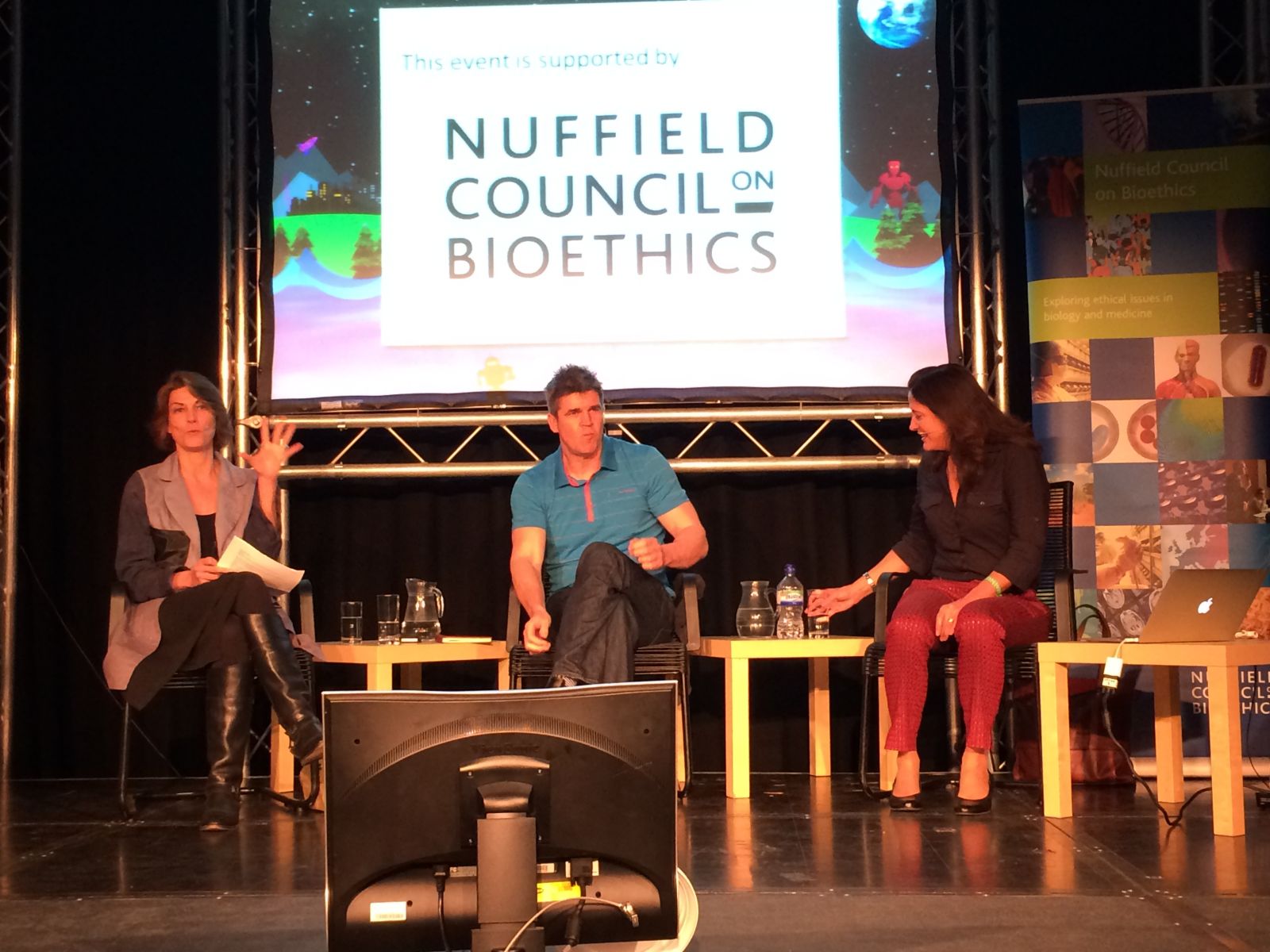News
Ethics of brain stimulation at Cheltenham Science Festival
A packed audience heard Ilina Singh and Vincent Walsh of the Council’s Working Party on novel neurotechnologies speak about the science and ethics of brain stimulation at a Cheltenham Science Festival event on 3 June.

Part of the festival’s opening day programme, the event in the Pillar Room at the Cheltenham Town Hall was chaired by science writer Jennifer Oulette and drew an audience of around 150 people. Short introductory presentations from Vincent and Ilina were followed by a lively Q&A discussion where important points were raised, including:
Find out more about the Council’s work on novel neurotechnologies

Part of the festival’s opening day programme, the event in the Pillar Room at the Cheltenham Town Hall was chaired by science writer Jennifer Oulette and drew an audience of around 150 people. Short introductory presentations from Vincent and Ilina were followed by a lively Q&A discussion where important points were raised, including:
- The term ‘brain stimulation’ covers a range of techniques which vary in how they operate, the contexts they are used in, how intrusive they are, the evidence available about benefits and risks, and, consequently, the ethical issues they raise.
- Brain stimulation technologies have the potential to meet an important need by helping people with disabling or distressing conditions which we do not currently have effective treatments for.
- Our limited knowledge about how the brain works, as well as about the possible benefits and risks of intervening in the brain, means that we have to exercise caution in how brain stimulation is used and promoted
- There is a lot of hype about brain technologies, with media and others sending out unrealistic messages about potential benefits as well as dangers of brain stimulation.
- It is important to realise that a lot of research currently published in this area is based on small scale studies in a laboratory context and cannot be assumed to apply in the ‘real world’.
- Responsible communication and public engagement are both important to address misapprehensions about the potential of neurotechnologies.
Find out more about the Council’s work on novel neurotechnologies
Share